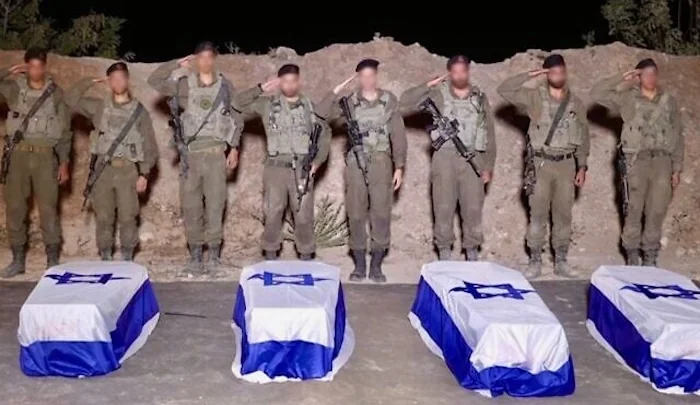
[Order Michael Finch’s new book, A Time to Stand: HERE. Prof. Jason Hill calls it “an aesthetic and political tour de force.”]
The Israelis were furious that Hamas returned only four of the 28 bodies of hostages murdered by the terror group that it had promised to deliver, and decided to apply pressure to force Hamas to look much harder for the 24 remains still in Gaza. More on Israel’s move can be found here: “Israel won’t reopen Rafah crossing, will limit aid, to press Hamas for remaining slain hostages,” Times of Israel, October 14, 2025:
Israel on Tuesday decided not to reopen the Rafah border crossing between the Gaza Strip and Egypt the next day, as required by the ceasefire deal, accusing Hamas of failing to stand by its commitment to return the bodies of all dead hostages still held by Palestinian terrorists in the Strip.
Israel said it would also reduce the amount of aid flowing into Gaza as part of the sanctions against the terror group.
The moves followed assessments by Israeli defense officials that Hamas has not made significant efforts to return the remaining bodies of the hostages, and amid rising anger among their families, with the main group representing them demanding that the ceasefire agreement’s implementation be halted until their loved ones are returned.
Hamas, unsurprisingly, is failing to live up to its commitments. When it originally said it would return the bodies of 28 Israelis, it was assumed Hamas either possessed those bodies or knew exactly where they were located and could be retrieved. Neither assumption turned out to be true. Now Hamas claims that it can’t find the bodies, that many are under the rubble and may never be found. The Israelis do not think Hamas has made much of an effort, and in order to concentrate the terror group’s mind, the Israelis have refused to open the Rafah crossing between Gaza and Egypt, and are also allowing only half of the aid trucks that were due to enter Gaza. After that Israeli announcement was made, Hamas suddenly said that it had, after all, just found four more bodies and would be returning them on Tuesday night. While Hamas may have thought that would be enough to persuade Israel to open the Rafah crossing and allow all the aid trucks in, not just half of them, it is more likely that, having seen how its pressure caused Hamas to come up so quickly with four more bodies, Israel will continue limiting aid and keeping the Rafah crossing closed until many more — a dozen? — bodies are produced.
There is another reason why Hamas may be reluctant to turn over bodies it possesses. Some of the hostages were likely tortured and murdered in captivity, and their bodies could tell a tale of eyes gouged out, genitalia cut off, and skulls smashed in. Hamas doesn’t want that to be known, so it won’t ever be turning over those bodies.
Now we will have to wait to see how many of the 20 bodies still in Gaza after the second group of four has been turned over, Hamas will manage to find and deliver to the Israelis, and when, in response, Israel will deem that number sufficient both to open the Rafah crossing, and to let in all of the aid trucks scheduled to enter Gaza.

















